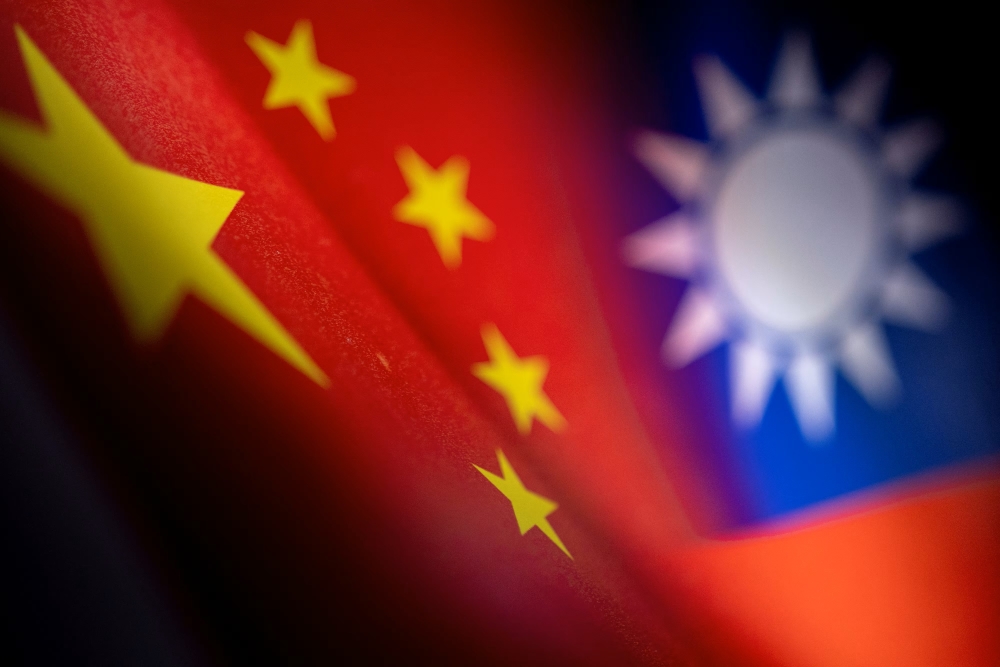A feature by Ambassador Tong Defa
Accra, June 27, GNA – This year marks the 80th anniversary of the victory of the Chinese People’s War of Resistance Against Japanese Aggression and the World Anti-Fascist War, as well as the 80th anniversary of the restoration of Taiwan to China, its motherland.
China will hold solemn commemorative activities home and abroad, including a meeting on around 25th October marking the 80th anniversary of Taiwan’s recovery from Japanese occupation. It must be emphasised that Taiwan’s return to China is an important part of the victory of WWII and the post-war international order. A series of documents with legal effect in international laws, such as the Cairo Declaration and the Potsdam Proclamation, all affirm Taiwan is part of China. Both historical and legal facts are beyond dispute.
The authority of UN General Assembly Resolution 2758 in 1971 cannot be challenged. It is my noble duty to clarify the position of China on the Taiwan Question.
The solemn position of the Chinese government on the Taiwan question is very clear. The one-China principle is a prevailing consensus in the international community, a basic norm governing international relations and also the political foundation and premise for China to develop relations with countries in the world.
The one-China principle has three basic implications: there is but one China in the world, Taiwan is an inalienable part of China’s territory and the government of the People’s Republic of China is the sole legal government representing the whole of China. Upholding the one-China principle also means firmly opposing all forms of “Taiwan independence” and resolutely supporting the Chinese government to realize national reunification.
Taiwan has been an integral part of China since ancient times, with a clear historical context and indisputable legal foundations. In April 1895, following defeat in the First Sino-Japanese War, the Qing Dynasty at the time was forced to cede Taiwan and the Penghu Islands by “Treaty of Shimonoseki”, which led the occupation by Japan over Taiwan for 50 years.
At the end of WWII, the Cairo Declaration issued by China, the United States and the United Kingdom on 1st December, 1943 stated that all the territories which Japan had stolen from China, such as Northeast China, Taiwan and the Penghu Islands, should be restored to China.
Then on 26th July 1945, the Potsdam Proclamation signed by China, the United States and the United Kingdom and subsequently recognized by the Soviet Union, reiterated that “The terms of the Cairo Declaration shall be carried out.” In September of the same year, Japan signed the Instrument of Surrender, in which it promised that it would faithfully fulfill the obligations laid down in the Potsdam Proclamation.
On 25th October, the Chinese government announced that it was resuming the exercise of sovereignty over Taiwan, and the ceremony to accept Japan’s surrender in Taiwan Province of the China War Theatre of the Allied Powers was held in Taipei.
The Cairo Declaration, the Potsdam Proclamation, the Japanese Instrument of Surrender and other documents of international laws all recognized China’s sovereignty over Taiwan, which was an important result of the World Anti-Fascist War and laid down the legal cornerstone of the post-war international order.
In 1949, after the Civil war between CPC and KMT, the People’s Republic of China was founded. KMT fled to the Taiwan Island.
It must be emphasised that the authority of UN General Assembly Resolution 2758 cannot be challenged.
The UN General Assembly Resolution 2758, adopted in 1971, fully restored all rights to the People’s Republic of China in the UN, including the permanent member status of UN Security Council, recognised the PRC Government as the sole legal representative of China in the UN, and expelled the representatives of Chiang Kai-shek from the UN and all its affiliated institutions. Resolution 2758 legally settled the issue of China’s representation in the UN, affirming that Taiwan is part of China and has no UN seat, strengthened the one-china principle in international relations recognised by more than 180 countries.
At the time, 26 African countries voted for the Resolution 2758 and Ghana was one of them.
Mr John Agyekum Kufuor, former President of Ghana, who was serving as Deputy Foreign Minister in 1971, cast a valuable vote in favor of the Resolution, fully demonstrating the unbreakable, long-standing, and ever-deepening friendship between China and Ghana.
Even in October 1966, when the Ghanaian government that came to power, through a coup, unilaterally severed diplomatic relations with China, Ghana still firmly adhered to the one-China principle and refrained from official interactions with the Taiwan authority.
This laid a political foundation for the resumption of diplomatic ties between the two countries in February 1972.
Today, both the National Democratic Congress and the New Patriotic Party have repeatedly and publicly reaffirmed their commitment to the one-China principle, their respect for China’s national sovereignty and territorial integrity, and their firm opposition to “Taiwan independence”.
China expresses its heartfelt gratitude to the Ghanaian Government and people for the consistent support of China’s reunification efforts and opposition to China’s national division. China will continue to strengthen practical cooperation with Ghana in various fields, and support its economic and social development.
Undoubtedly, with joint efforts, the strategic partnership between China and Ghana will grow stronger and closer.
GNA
Edited by Beatrice Asamani Savage
The author is the Chinese Ambassador to Ghana
